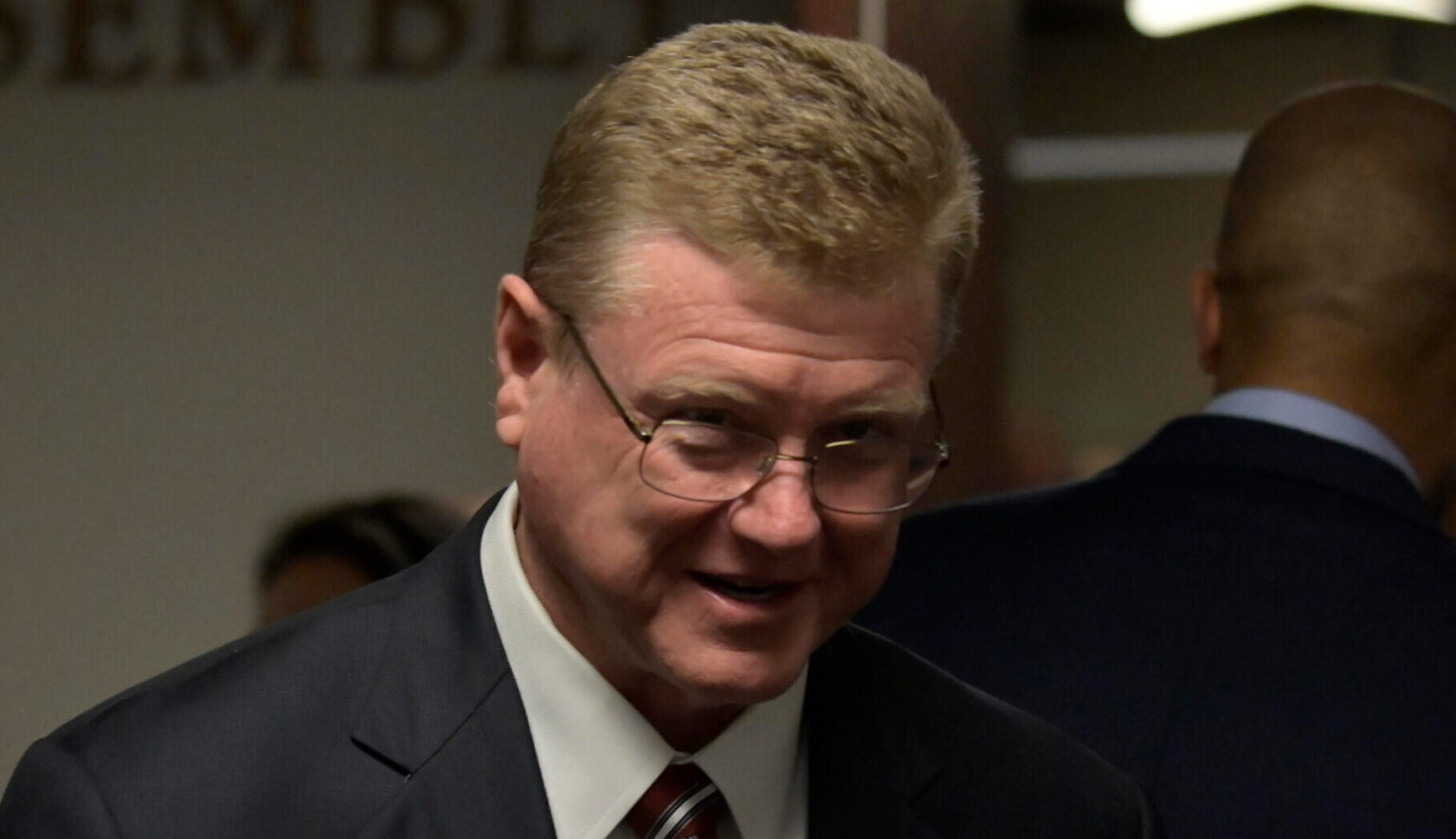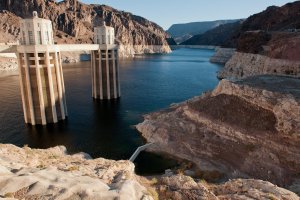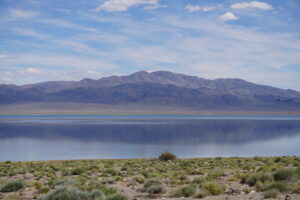6:37
News Story
Amodei’s mining bill fails to pass Republican-controlled House
Nevada’s lone congressional Republican suffered a blow this week after six members of his own party joined Democrats to block a bill he authored to address a court ruling adopting a stricter interpretation of the 150-year-old General Mining Law.
Mining developers looking to extract minerals in Nevada are grappling with the aftermath of a 2022 U.S. appellate court ruling that essentially restricted mining companies from dumping waste on federal lands.
While federal mining law allows companies to mine on federal land where economically valuable minerals are present, the federal court decision ruled that companies are not guaranteed the right to use adjacent federal land without valuable minerals for related purposes – such as waste rock disposal or running power lines.
The Mining Regulatory Clarity Act of 2024 — introduced by Nevada Republican Rep. Mark Amodei —would respond to the ruling by removing a provision in an 1872 federal mining law that mining companies must show a mineral deposit is present before building roads and other support facilities at a potential site.
However, the legislation died on the House floor Wednesday after a 210-206 vote to send the bill back to the House Natural Resources committee. Amodei’s office did not respond in time for publication.
Six hard-line Republicans — Andy Biggs and Eli Crane of Arizona, Dan Bishop of North Carolina, Bob Good of Virginia and Matt Gaetz and Anna Paulina Luna of Florida — voted with all Democrats to block the bill.
During floor debate, Republicans argued the bill was needed to clarify a 2022 federal appeals court decision that blocked approvals for mining support facilities at an Arizona copper mine.
“The decision limited the ability of the Forest Service to approve necessary mining support facilities and activity, which is necessary for mining operations,” Minnesota Republican Pete Stauber said Wednesday. The decision “put virtually every new domestic mining project in jeopardy.”
In Nevada, the appellate court ruling has the potential to send mining projects — years in the making — back to square one.
In the case of a planned molybdenum mine by Nevada-based developer Eureka Moly LLC, a district court judge vacated the 2019 Bureau of Land Management’s approval of the project after ruling the developer did not have the right to dump waste rock on federal land without valuable mineral deposits.
The new stricter interpretation of the 150-year-old General Mining Law, also affected what may potentially become the largest lithium mine in the United States, the Thacker Pass project south of the Nevada-Oregon border. Last year, a district judge cited the Arizona ruling when determining that federal land managers violated federal law when they approved the mine developer’s plan to bury 1,300 acres of public land under waste rock.
Prior to the court decision adopting a stricter interpretation of the 150-year-old General Mining Law, mining companies had been dumping mining waste on neighboring federal lands without issue for decades.
House Democrats argued Amodei’s bill would only benefit the mining industry by making it easier for companies to develop sites without documented mineral deposits. On the House floor, Democrats said the bill would give too much power to — and provide too little accountability for — mining companies that already work in a favorable regulatory environment.
New Mexico Democrat Melanie Stansbury said mining companies operate under an 1872 law that provides nearly unfettered access to lands that other extractive industries “could only dream of.”
Congress should be improving environmental protections to the 19th-century law, but the bill considered Wednesday would only weaken existing protections, she said.
“This bill removes the one frail safeguard that we have,” she said. “Under this bill, any American — or frankly any American subsidiary of a foreign company, including those that are located in adversarial countries — can put four stakes in the ground and on open public lands pay less than $10 an acre per year to have exclusive rights to that land, forever. Forever. This bill would create a free-for-all on our public lands.”
Both Republicans and Democrats in the U.S. Senate have described the federal appeals court decision as “a significant departure from long-held mining practices.” Last year, Nevada Sen. Catherine Cortez Masto has proposed a similar bill — the Mining Regulatory Clarity Act — that would make it legal to use part of a mining claim for mining related purposes on land without valuable minerals, including waste rock disposal.
States Newsroom reporter Jacob Fischler contributed to this report.
Our stories may be republished online or in print under Creative Commons license CC BY-NC-ND 4.0. We ask that you edit only for style or to shorten, provide proper attribution and link to our website. AP and Getty images may not be republished. Please see our republishing guidelines for use of any other photos and graphics.




